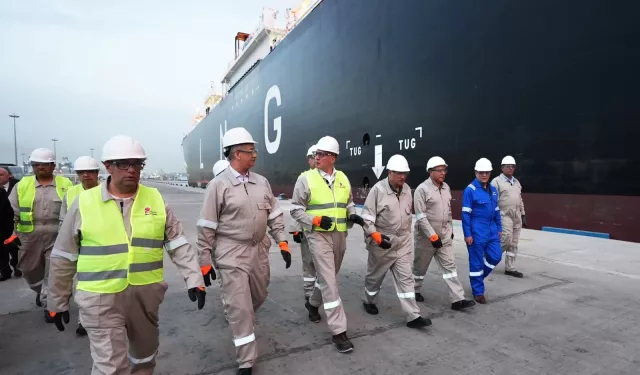Egypt will begin importing natural gas from Cyprus’s Kronos and Aphrodite fields in 2027, with half of the initial volumes designated for the domestic market, according to a source at the Egyptian Natural Gas Holding Company (EGAS) familiar with the supply plan.
The rollout will unfold in two phases. The first will draw from the Kronos field, expected to deliver 800–900 million cubic feet per day. By 2029, the Aphrodite field will come online, doubling total flows to 1.6–1.7 billion cubic feet daily.
On Feb. 17, 2025, Egypt and Cyprus signed agreements on re-exporting and marketing Cypriot gas during a summit attended by Egyptian President Abdel Fattah El-Sisi and Cypriot President Nikos Christodoulides. Under the deal, gas will be piped to Egypt’s liquefaction plants in Idku and Damietta, then shipped as LNG to Europe and East Asia.
“This will mark the commercial return of both liquefaction terminals,” said the EGAS source, who requested anonymity. “The infrastructure will serve as a backbone for Egypt’s gas export strategy going forward.”
The source emphasized that domestic needs will take priority, with demand reviewed each quarter. Imported gas could replace more expensive or unstable supply sources, depending on state planning and pricing agreements with the petroleum authority.
On Tuesday, Egyptian Petroleum Minister Karim Badawi met his Cypriot counterpart, George Papanastasiou, to discuss accelerating grid connections from both fields—a step that would expand Cyprus’s export capacity and support Egypt’s bid to become a regional energy hub.
EGAS aims to raise local production to 6.6 billion cubic feet per day by 2027, aligning with incoming Cypriot volumes, the source told Al Manassa. But with current domestic consumption at 6.7–6.9 billion cubic feet and rising nearly 5 percent annually, demand is projected to exceed 7 billion cubic feet per day by 2027, they explained.
At present, Egypt produces 4.1 billion cubic feet per day, a figure EGAS hopes to raise to 4.3 billion by the final quarter of 2025, they added.
Meanwhile, EGAS announced the discovery of 29 new natural gas fields across the Mediterranean, Western Desert, and Gulf of Suez, plus three additional wells in the Mediterranean and Nile Delta. Combined, these finds add 1.85 trillion cubic feet to Egypt’s reserves.
The Cypriot deal comes amid growing uncertainty over gas imports from Israel. Earlier this week, Israeli Prime Minister Benjamin Netanyahu froze a $35 billion gas agreement with Egypt. The move follows heightened tensions over Israel’s military campaign in Gaza.
Only last month, Egypt amended its agreement with Israel to add 130 billion cubic meters of contracted gas, extending revenues to $35 billion and stretching the deal through 2040.
Egypt currently receives Israeli gas through the 100-kilometer East Mediterranean Gas pipeline from Arish to Asqalan under the sea, along with additional volumes routed via Jordan through the Arab Gas Pipeline.
